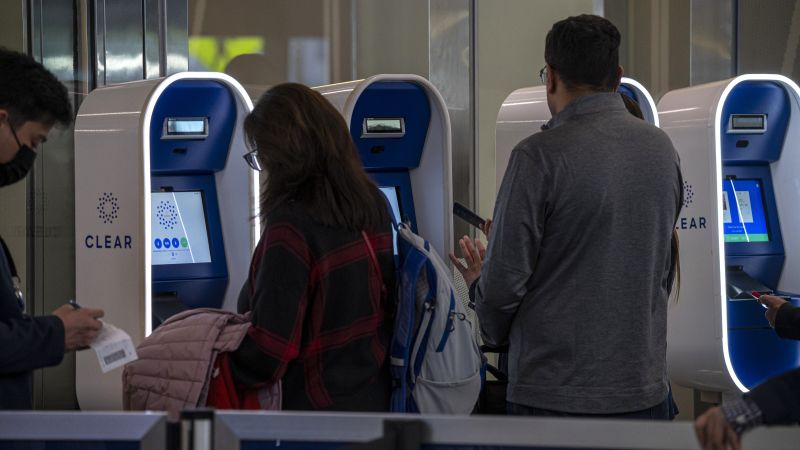California lawmakers are considering a bill that would create a moratorium on the expansion of Clear, a service that allows travelers to skip the security line at airports for a fee of $189. The bill aims to address the frustration and feelings of unfairness experienced by travelers who cannot afford or access the Clear membership. Clear members can verify their identity using biometric data and are escorted to the front of the TSA security line by a Clear employee. This has led to concerns that income or willingness to pay should not determine the quality of the airport security experience.
The bill, introduced by Sen. Josh Newman, is not aimed at ending the Clear program entirely but rather at creating separate lines for members of third-party screening services like Clear. This would ensure that general passengers are not affected by others skipping the line. The bill also seeks to prevent airports from entering into new contracts with private companies like Clear if they use existing TSA security lines and screeners. While the bill has support from flight attendants and TSA agents, it is opposed by Clear, major airlines like Delta, California airports, and business groups.
An analysis of the bill conducted by the California Senate Transportation Committee indicates that airports would lose revenue if Clear were to be restricted, potentially leading to increased fees for other customers such as car rental companies, concessionaires, or airlines. It may also be challenging for airports or Clear to obtain dedicated TSA security lines and screeners, as TSA is a federal agency requiring congressional approval for staffing increases. However, the analysis suggests that Clear could advocate for additional funding for TSA lanes and agents at the federal level to address this issue.
Clear, a publicly-traded security company, offers expedited service at nine airports in California, with approximately 10% of California travelers being Clear members. While some view the line-skipping service as a benefit, others argue that it creates an inequitable system based on income or willingness to pay. The proposed bill would allow Clear passengers to continue using their dedicated security lane while ensuring that general passengers are not impacted by line-skipping. Clear has highlighted its contributions to the state economy, including job creation and revenue generation for state airports.
The bill has to be approved by the full California Senate and Assembly before it can become law, and then signed by Gov. Gavin Newsom. It is the first of its kind in the United States and has garnered support from various groups, as well as opposition from Clear, airlines, airports, and business organizations. The debate over the bill raises questions about the fairness of access to expedited security services at airports and the potential economic impacts of restricting or regulating such services. Ultimately, the outcome of this legislation will have implications for how security screening services are managed and accessed at California airports.


